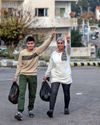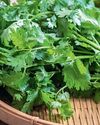
"The Middle East is quieter today than it has been in decades," said the US national security adviser, Jake Sullivan, in a fate-tempting speech a week before the Hamas attacks.
The plan was to "ultimately integrate" the region by encouraging further normalisation between Arab states and Israel, thereby isolating and taming Iran. It hasn't worked. The 7 October attacks put the Middle East back on Biden's desk. Arab countries have a habit of behaving in ways dictated by domestic calculations and regional ambitions rather than western foreign policy priorities.
The result is that all bets are off. And in a matter of weeks the Middle East and wider Arab world have become drawn into the war in a way that has not been met by appropriate action by the US and other Israeli allies.
Underpinning the paralysis is a linchpin of the US's Middle East foreign policy: that Israel is the US's key security partner in the region, and that reconsidering its arming and support is therefore out of the question.
The cost of this logic is high, and escalating. The talk is of "fears of a wider war in the Middle East", but the truth is that war is already here. It has now spilled into Lebanon, Yemen, Iran, the Red Sea and the Arabian Sea.
Diese Geschichte stammt aus der January 12, 2024-Ausgabe von The Guardian Weekly.
Starten Sie Ihre 7-tägige kostenlose Testversion von Magzter GOLD, um auf Tausende kuratierte Premium-Storys sowie über 8.000 Zeitschriften und Zeitungen zuzugreifen.
Bereits Abonnent ? Anmelden
Diese Geschichte stammt aus der January 12, 2024-Ausgabe von The Guardian Weekly.
Starten Sie Ihre 7-tägige kostenlose Testversion von Magzter GOLD, um auf Tausende kuratierte Premium-Storys sowie über 8.000 Zeitschriften und Zeitungen zuzugreifen.
Bereits Abonnent? Anmelden

Votes of confidence
From India to Venezuela and Senegal to the US, more people voted this year than ever before, with over 80 elections across the world. With rising authoritarianism and citizen-led resistance revealing its vulnerabilities and resilience in the face of unprecedented challenges, has democracy reached its breaking or turning point?

Out of touch How president sealed his own fate in martial law gambit
For Yoon Suk Yeol, this month's short-lived martial law declaration wasn't just a catastrophic miscalculation - it was the culmination of a presidency that had been troubled from the start.

Son of the soil Who is François Bayrou, the farmer turned prime minister?
François Bayrou, the new French prime minister, calls himself a country man. A tractor-driving \"son of the soil\" and breeder of thoroughbreds, he has run for president three times, saying his rural roots and centrist politics led him to try to find common ground between left and right.

Power plant workers keeping the lights on
The Guardian Weekly visits a Soviet-era coal-fired thermal installation to learn how it has held up to Russian attacks

Prince charmed Alleged spy scandal may have exposed China threat
Prince Andrew should be commended for doing Britain a great service, according to longstanding China watcher Charles Parton. The now marginalised royal has, the analyst observed, \"almost single handedly\" succeeded \"in highlighting the threat to free and open countries\" posed by the contemporary Chinese state.

In Moscow, a new life of secluded irrelevance awaits Assad
He was whisked away without a last message to his people, the aircraft's transponder deliberately switched off to avoid detection as it departed from an airbase in Syria.

'We fear new oppression' Alawites worry over rebel rule
To prepare khubeiza, the leaves of the kale-like plant must be roughly chopped and sauteed with onions, garlic and a dash of salt. According to folklore, the recipe originated among the Alawite communities who lived in Syria's mountainous coastline where the fibrous, wild-growing plant can be found in abundance. So poor were the Alawites in Ottoman times, the story goes, that the only food they could find to eat was khubeiza, which sprouts like a stubborn weed every spring.

'Gisèle is waiting for explanations'
The Pelicot rape trial has horrified the world. But as it comes to an end, the questions it has raised about French society and rape culture have still not been answered.

FROM DOCTOR TO BRUTAL DICTATOR THE RISE AND FALL OF ASSAD
0N THE FACE OF IT AT LEAST, the Bashar al-Assad of 2002 presented a starkly different figure from the brutal autocrat he would become, presiding over a fragile state founded on torture, imprisonment and industrial murder.

What fresh alternatives can be used to placate coriander haters?
Everyone knows a hater of coriander - also known as cilantro - who won't go near the stuff. Itamar Srulovich, however, is not one: \"I adore fresh coriander, and always have,\" says the chef/co-owner of the Honey & Co group in London.